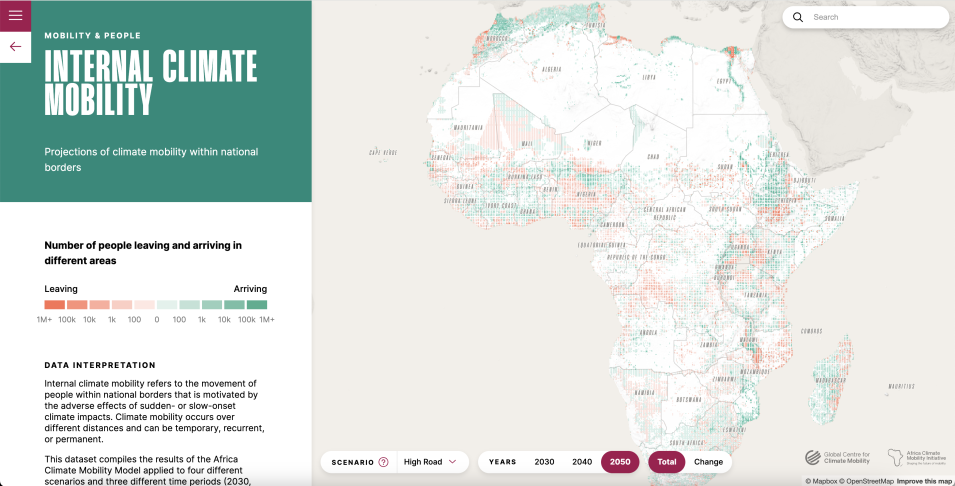A new report from the Africa Climate Mobility Initiative (ACMI) titled "African Shifts: Addressing Climate-Forced Migration & Displacement" depicts African people's experience of climate vulnerability and presents possible scenarios for movements due to climate impacts on the continent between now and 2050. Finally, it presents eight key recommendations to be implemented between now and 2030 that focus on constructive, adaptive responses to climate mobility, in alignment with the 2030 Sustainable Development Goals and the Paris Agreement.
Using source data provided by NASA's Socioeconomic Data and Applications Center (SEDAC), Columbia University's Center for International Earth Science Information Network (CIESIN) contributed to the report by producing spatially explicit projections of both internal and international mobility that may occur from climate impacts, within and among African countries, up to the year 2050. This modeling builds on the innovative approaches of the World Bank’s "Groundswell" series of reports, for which CIESIN worked with City University of New York and the Potsdam Institute for Climate Impact Research on the modeling. The modeling work was complemented with findings from field research conducted by the Mixed Migration Centre.
